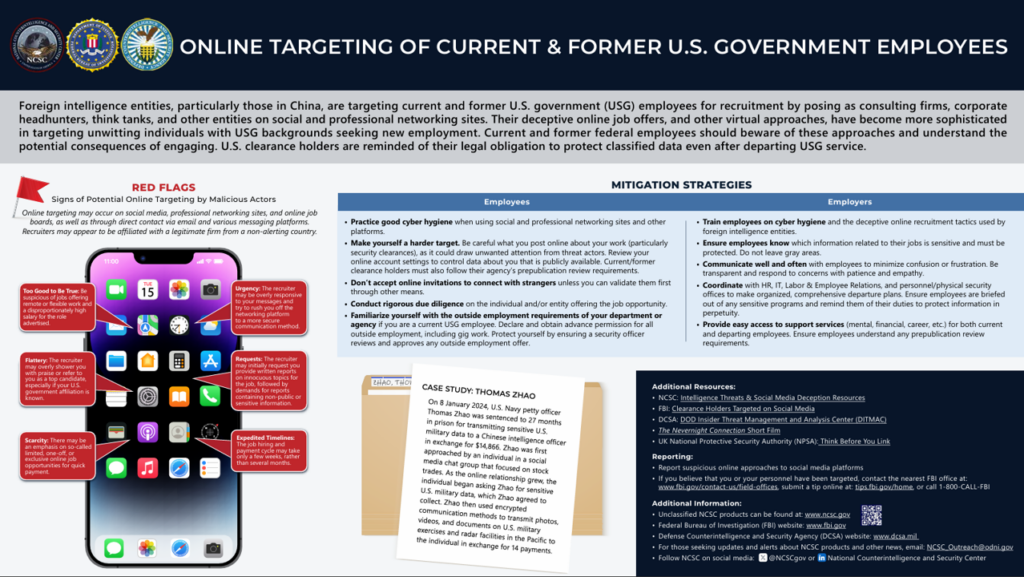Federal Hiring Freeze Creates Openings for Foreign Espionage
The federal hiring freeze has created a golden opportunity for foreign intelligence services to recruit spies. Multiple US intelligence agencies have publicly warned of this risk and have asked public servants to remain extra vigilant. In one public statement, the Coast Guard Counterintelligence Service (CGCIS) warned:
“CGCIS reminds members to be cautious with their online presence. Posting about your frustration, status as a recently fired employee, or any other OPSEC sensitive information could make you a target. Our adversaries have successfully preyed on upset and disgruntled government workers during past furloughs.”

The Department of Government Efficiency (DOGE)-driven layoffs have placed many federal employees, especially those holding security clearances, under financial strain and professional uncertainty. This makes offers of financial compensation from foreign actors more tempting. Moreover, the widespread frustration and resentment caused by the freeze increases the risk that some individuals may be more inclined to leak sensitive information than they were previously. There have already been warnings that DOGE and its initiatives could put US cybersecurity at risk.
These risks are not limited to government employees alone. Contractors who support federal agencies face similar financial pressures. Meanwhile, students who had planned to enter public service are seeing job offers and internships vanish, even as they remain burdened by student debt. This makes them similarly attractive targets for foreign recruitment. One graduate student told Overt Defense about their recent experience with recruitment attempts by foreign intelligence services:
“This summer, I was supposed to be working as a research intern for the Department of Defense. However, the program was abruptly cancelled just weeks before it was meant to start, past the deadlines for most internship applications. While looking for alternate internships on LinkedIn, I was approached by a recruiter for a think tank offering me $500-$1000 per research article—very high rates.
They tried to act very quick, scheduling an interview for the very next day. This already was sus. But then, you go on their website, and they’re not even trying— just AI generated images of Chinese and South Korean flags and short posts about China-Korea friendship. Then, you look up their CEO, who is the only employee they have listed, and he shows up exclusively in interviews with Chinese state media advocating for a realistic and interest-based South Korean foreign policy which just so happens to align perfectly with Beijing’s policy objectives. Anyway, the next day instead of calling them, I called the FBI.”
Chinese and other foreign intelligence agencies have reportedly been monitoring LinkedIn and other social media platforms to identify recruitment prospects, particularly those with past government experience who are now unemployed. In some cases, adversaries have used fake job postings to collect resumes and initiate contact. This surge in foreign intelligence activity is just one of several national security vulnerabilities emerging from the federal hiring freeze.

